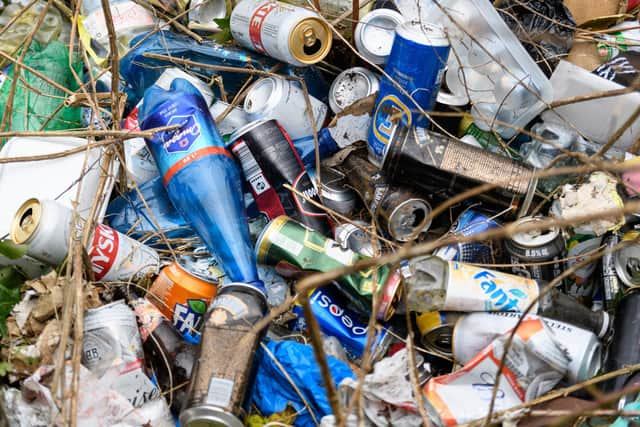Why we must start taking action against the growing problem of litter - Theresa Villiers
One of the most disturbing impacts of litter is on wildlife. The Royal Society for the Prevention of Cruelty to Animals (RSPCA) receives hundreds of calls every year reporting the harm done to animals and birds by carelessly discarded items - suffocated by plastic bags, entangled in plastic can holders, trapped in cans or injured by sharp edges - and who could fail to be distressed and moved by the pictures we have seen on our TV screens of marine life choked on plastic or drowned by discarded fishing gear?
Government figures from 2018 indicated that every year more than 150 million tonnes of plastic waste enter the world’s oceans and one million birds die from eating it or becoming tangled up in it. There are other figures indicating that the problem may be even worse. The situation is intolerable and we must take action.
Advertisement
Hide AdAdvertisement
Hide AdLitter problems intensified during lockdown, when dumping food and drink packaging in parks seemed to reach epidemic proportions. I found it depressing to see Oak Hill Park in my constituency strewn day after day with coffee cups.


During lockdown walks, I also noticed that the rubbish at the roadside of the A1 where it passes close to my constituency was appalling - feet deep in some places. I am sure all Members of this House are aware of the grave harm caused by fly-tipping, the most extreme form of littering. It occurs on many streets and in many open spaces in my constituency. This blight on our communities must be tackled, and I know Ministers are determined to do so.
Change is on the way. In 2017 the Government published England’s first ever national litter strategy, setting out how they planned to deliver the aim of substantially reducing littering within a generation. The Environment Act 2021, paves the way for important action.
First, it will allow digital tracking of waste, providing important new ways to hold to account those responsible for disposing of our rubbish.
Advertisement
Hide AdAdvertisement
Hide AdSecondly, it contains new powers to tackle fly-tipping. In my time as Secretary of State, I was privileged to help set up in 2020 a joint unit bringing together law enforcement agencies, environmental regulators, His Majesty’s Revenue and Customs and the National Crime Agency in the war against fly-tipping and waste crime.
Thirdly, the Act will pave the way for extended producer responsibility. Extended Producer Responsibility (EPR) is a scheme to ensure that the companies that produce plastic packaging meet the full cost of disposing of it. The goal is to incentivise a reduction in the volume of packaging used and ensure that more of it is recycled. EPR will also create a new income stream to help local councils deal with the cost of disposing of rubbish and tackling litter.
The Department for Environment, Food and Rural Affairs estimates that packaging producers will need to pay around £1.2bn a year in EPR charges, which will go to councils.
A commitment to EPR was made back in 2018. Let us get it done.
An abridged version of a speech by Theresa Villiers, former Secretary of State for Environment, Food and Rural Affairs, during a debate in the House of Commons on litter.